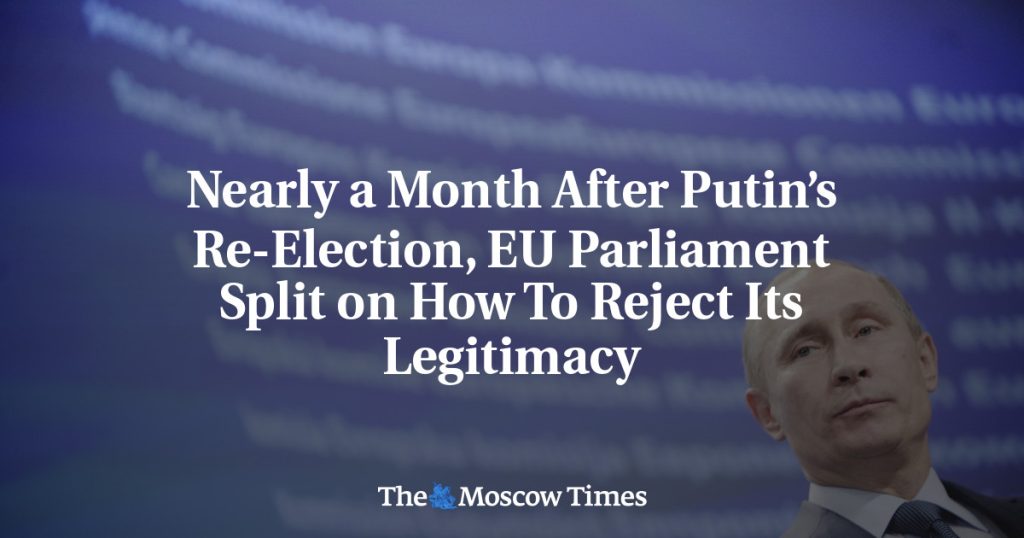The European Parliament is currently divided on how to approach Russian President Vladimir Putin’s recent election to a fifth term. Despite widespread reports of voter fraud and falsification, some members are hesitant to reject the election’s legitimacy in fear of hindering negotiations with Russia. Talks are ongoing within the parliament’s parties to reach a consensus before the current session ends. There are concerns that the lack of time and a unified position could result in no resolution being issued at all, or only a condemnation of how the election was conducted rather than a rejection of Putin’s new term.
Some members, particularly those with more hawkish views, are calling for a declaration that Putin’s fifth term is illegitimate due to the circumstances surrounding the election. Others are wary of taking such a step, as it may hinder the possibility of negotiating with Moscow in the future. There are upcoming sessions planned where decisions will be made, including a “mini-plenary” session in Brussels and a parliamentary session at the end of April in Strasbourg. The resolution on the Russian election is expected to be made on Wednesday, with ongoing discussions among members on what stance to take.
While there is a chance that a resolution could be issued rejecting Putin’s new term, there is disagreement among members on the necessity of such a statement. The European Parliament cannot regulate the EU’s foreign policy, but its resolutions do carry symbolic weight and can influence European policymaking decisions. Talks regarding the legitimacy of the Russian presidential election began in early 2024, with opposition in exile calling on the European Parliament to not recognize the results. The Parliamentary Assembly of the Council of Europe has already taken a stronger stance, calling on member states to cease contact with Putin after his current term ends.
There are two mainstream viewpoints within the EU Parliament regarding Putin’s election. Most members agree that the election was not democratic, but there is no consensus on whether Putin’s new term should be recognized. Discussions are complicated by differing opinions on negotiating with Putin, with some members emphasizing the necessity of communication with Russian representatives for peace and diplomacy. The lack of agreement on not recognizing Putin’s new term highlights the division within the European Parliament on how to approach Russia in the future. Despite differing views, there is ongoing dialogue among members on how best to address the situation.


